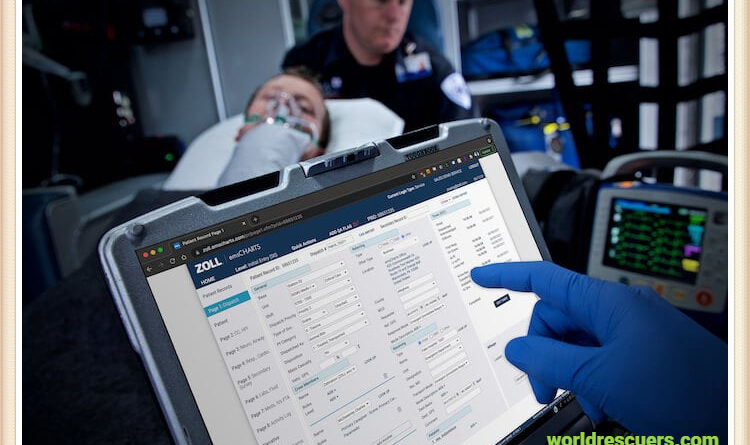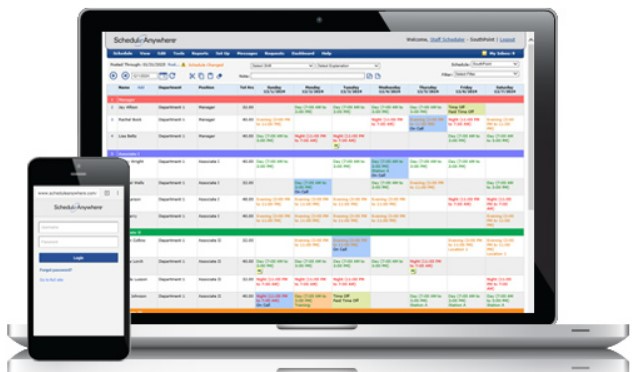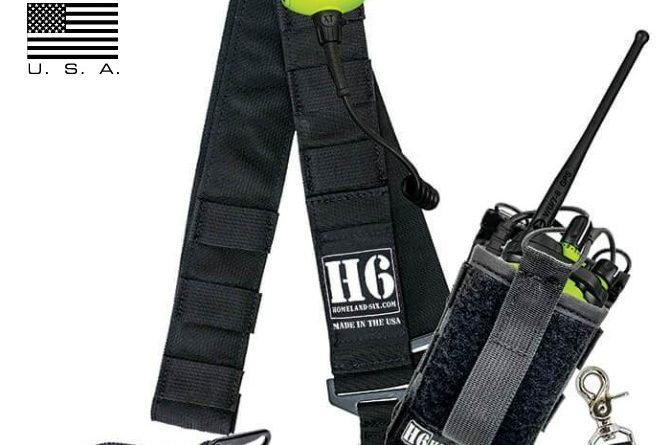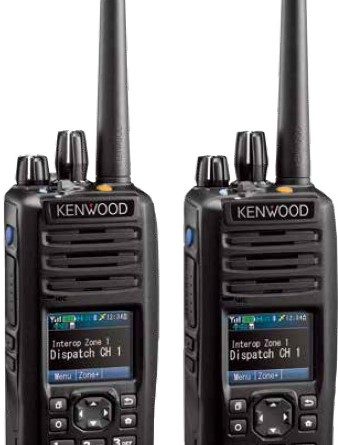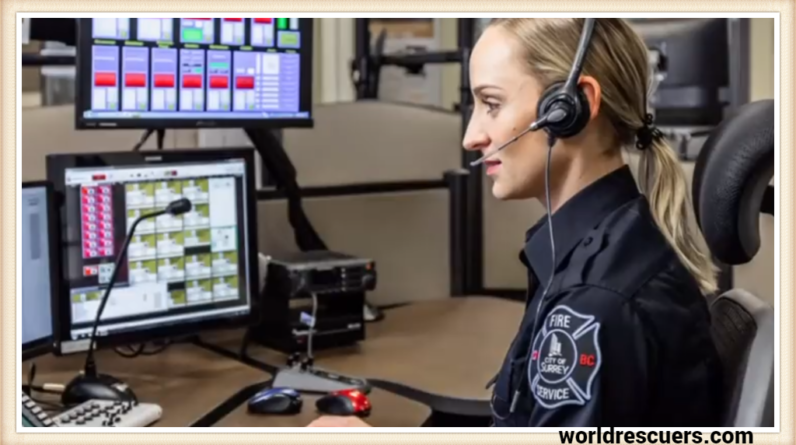
Summary
Fire dispatcher is the unsung hero behind every successful firefighting operation. Their ability to handle the pressure, make quick decisions, and effectively coordinate resources ensures that help reaches those in need when it matters the most. As the heart of efficient fire department dispatch, fire dispatchers play an indispensable role in safeguarding communities and protecting lives.
When emergencies strike and fire threatens lives and property, a swift response from the fire department is crucial. Behind the scenes, ensuring the smooth and timely dispatch of firefighters to these emergencies is the unsung hero – the Fire Dispatcher. In this article, we will explore the vital role of a fire dispatcher, the skills and qualifications required, and how they play a pivotal part in the fire department’s operations.
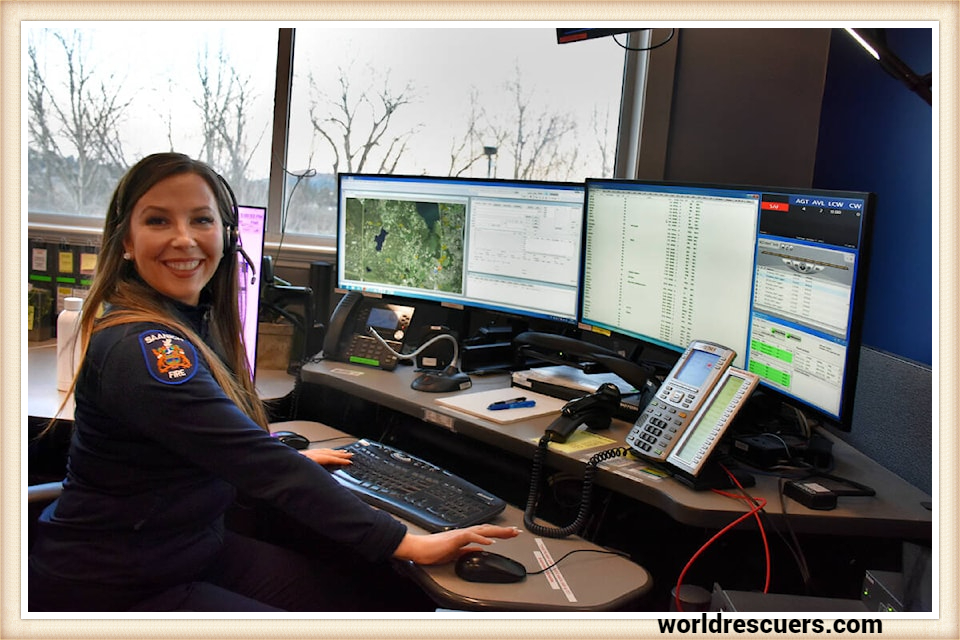
Understanding the Role of a Fire Dispatcher
What is a Fire Dispatcher?
A fire dispatcher is a trained professional responsible for coordinating emergency responses within the fire department. They act as a crucial link between the public in distress and the firefighters who rush to their aid.
The Importance of Active Fire Dispatch
Active fire dispatch involves immediate and precise communication with firefighters and emergency personnel. The fire dispatcher receives emergency calls, assesses the situation, and deploys the appropriate resources to the scene, ensuring a swift and effective response.
Qualifications and Skills of a Fire Dispatcher
Training and Education
Fire dispatchers undergo specialized training to handle emergency situations effectively. They receive instruction in call-taking techniques, resource allocation, and emergency management protocols. Additionally, they learn to use various communication systems to interact with first responders.
Strong Communication Skills
Effective communication is the backbone of fire dispatching. Dispatchers must convey clear and concise information to firefighters, helping them understand the nature of the emergency and the resources available.
Quick Decision Making
In high-pressure situations, fire dispatchers must think on their feet and make critical decisions swiftly. Their ability to assess emergencies and allocate resources efficiently can make a significant difference in the outcome.
The Role of Fire Dispatcher in Fire Department Dispatch
Receiving Emergency Calls
When an emergency call comes in, the fire dispatcher’s role begins. They must gather essential information from the caller, including the location, type of emergency, and any additional details that could help the firefighters respond effectively.
Resource Allocation
Based on the information received, the fire dispatcher identifies the nearest fire station and deploys the appropriate firefighting units. This requires a keen understanding of the fire department’s resources and the ability to prioritize responses based on the severity of the situation.
Continuous Coordination
During an active emergency response, the fire dispatcher maintains constant communication with the responding units. They provide updates on the situation, route information, and any changes that may affect the response strategy.
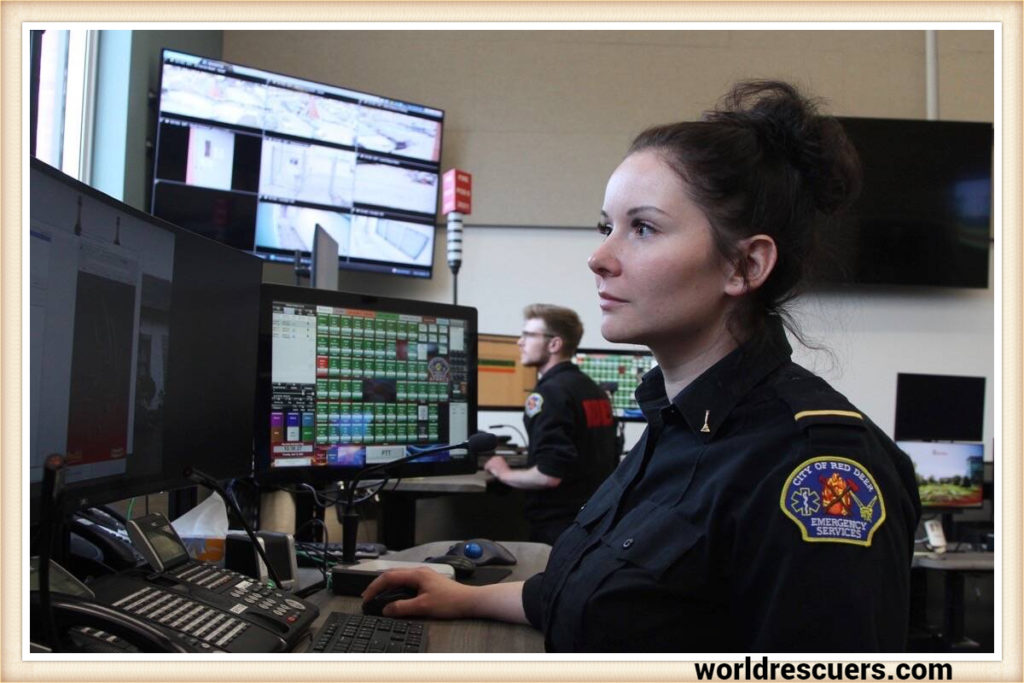
Challenges Faced by Fire Dispatchers
Perplexity in Emergency Situations
No two emergencies are the same, and fire dispatchers must be prepared for a wide range of scenarios. Their ability to handle complex and unpredictable situations is crucial to ensure a successful response.
Burstiness in Emergency Calls
Emergency calls can come in clusters during natural disasters or major accidents. Fire dispatchers must manage the sudden influx of calls and efficiently coordinate resources to respond to all emergencies promptly.
Follow us on Pinterest. Click Here
FAQs
What is a fire dispatcher?
A fire dispatcher is a trained professional responsible for coordinating emergency responses within the fire department.
What is the work of dispatcher?
The work of a dispatcher involves coordinating and managing various aspects of operations, especially in emergency response situations. Dispatchers serve as a crucial link between the public, emergency responders, and other essential personnel.
What is a dispatcher skill?
A dispatcher requires a diverse set of skills to excel in their role. Some of the key skills include:
- Communication Skills: Effective communication is essential for dispatchers. They must be able to listen carefully to callers, ask relevant questions, and convey information clearly and concisely to emergency responders.
- Quick Decision Making: Dispatchers often face time-sensitive situations and must make rapid decisions. They need to assess information quickly and prioritize actions to ensure the appropriate response.
- Multi-tasking Abilities: Dispatchers handle multiple tasks simultaneously, such as answering calls, coordinating resources, and updating responders. They must be adept at managing various responsibilities efficiently.
- Calm under Pressure: Emergency situations can be stressful and chaotic. Dispatchers must remain calm and composed to provide the necessary support and instructions to callers and responders.
- Geographical Knowledge: Knowing the local area and geography is crucial for dispatchers to direct emergency responders accurately to the scene of an incident.
- Familiarity with Emergency Protocols: Dispatchers need to be well-versed in emergency protocols and procedures to coordinate responses effectively.
- Technical Proficiency: They use various communication systems, CAD software, and other technology tools. Being technologically savvy helps them manage these systems efficiently.
- Attention to Detail: Dispatchers must accurately record information, update statuses, and maintain logs of incidents. Paying attention to detail ensures accurate record-keeping.
- Empathy and Compassion: Dealing with distressed callers requires empathy and compassion. Dispatchers must show understanding and provide reassurance during difficult situations.
- Teamwork and Collaboration: Dispatchers work closely with emergency responders and other agencies. Collaborating effectively ensures a smooth flow of information and resources.
- Adaptability: Each emergency is unique, and situations can change rapidly. Dispatchers must be adaptable to handle various scenarios and adjust their responses accordingly.
- Problem-Solving Skills: They encounter challenging situations and must find solutions to unexpected problems during emergencies.
- Time Management: Dispatchers need to prioritize tasks and manage time efficiently to ensure timely responses to emergencies.
- Language Proficiency: Being fluent in multiple languages, especially in diverse communities, can be beneficial in serving a broader range of callers.
What is the role of a dispatcher in logistics?
In logistics, a dispatcher plays a crucial role in ensuring the smooth and efficient movement of goods and resources. Their responsibilities revolve around coordinating various elements of the supply chain and transportation process.
Highly trained Assistant Fire Chief dedicated to public safety and awareness for the past 16 years. Effective leader who remains steady during times of emergency, while directing and motivating team members throughout crises.


